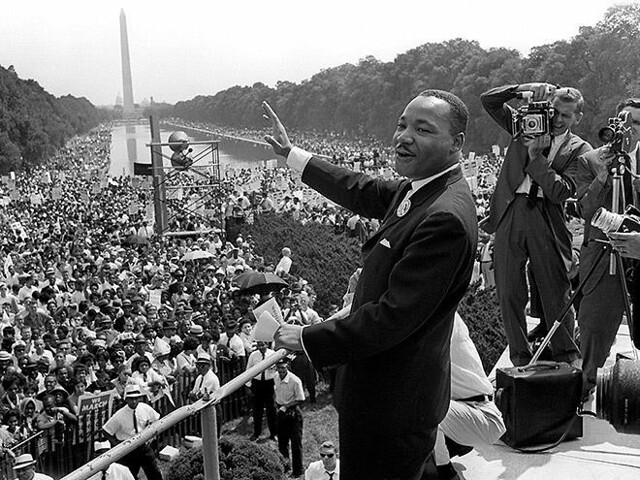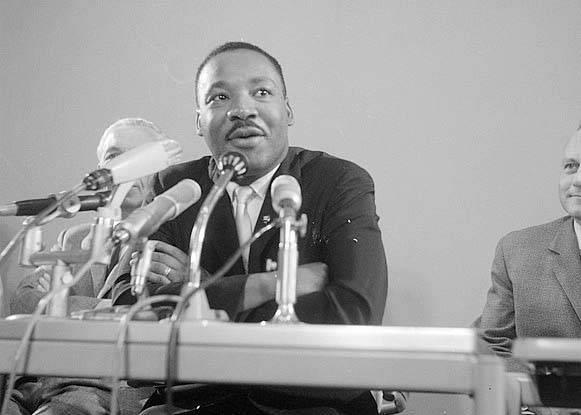Martin Luther King Jr.'s Enduring Influence on Healthcare
Martin Luther King Jr. left an indelible mark on numerous facets of American society, including the American healthcare system. At the March 1955 Convention of the Medical Committee for Human Rights held in Chicago, he said, “Of all the forms of inequality, injustice in health is the most shocking and the most inhumane.” His fight for racial equality, justice, and advocacy for change substantially impacted healthcare in the United States, helping lead the way to the compassionate care we see healthcare workers give their patients every day.
In honor of Martin Luther King Jr. Day, which happens to fall on his actual birthday in 2024, let’s reflect on Dr. King’s impact and legacy on the modern healthcare landscape.

Advocacy for Health Equity
Recognizing the stark disparities in access to care and health outcomes among minority communities, King emphasized the urgent need to address these inequities. His advocacy underscored the fundamental right of every individual to access quality healthcare, regardless of socioeconomic status, race, or background. King’s call for health equity resonated with healthcare professionals and policymakers, catalyzing efforts to dismantle systemic barriers and ensure equitable access to healthcare services.
Promotion of Community Health and Well-Being
King’s philosophy of community empowerment and collective responsibility fostered the need for community-based healthcare initiatives. Recognizing the importance of addressing social determinants of health, King’s teachings inspired healthcare providers to engage more actively with communities, collaborate with local organizations, and develop programs that address underlying factors affecting health and well-being. His emphasis on grassroots mobilization and community empowerment laid the groundwork for innovative approaches to public health and community-based care.
Influence on Medical Ethics and Compassionate Care
The heart of Martin Luther King Jr.’s teachings was the principle of compassion and service to others. This ethos profoundly influenced the ethical foundations of modern healthcare, emphasizing the intrinsic value of every individual and the importance of patient-centered care. King’s emphasis on empathy, dignity, and respect resonated with healthcare professionals, reinforcing the need to prioritize patients’ well-being and uphold new standards for human dignity and justice.
Inspiration for Healthcare Reform and Policy Advocacy
King’s transformative vision for a just and equitable society galvanized momentum for healthcare reform and policy advocacy. His advocacy for comprehensive social programs and economic justice highlighted the interconnectedness of health and broader societal factors. King’s teachings inspired healthcare leaders and policymakers to envision a more inclusive and equitable healthcare system, driving initiatives to expand access to care, reduce disparities, and address the root causes of health inequities.

The Continuing Journey Towards Healthcare Equality
While acknowledging the monumental strides achieved in healthcare since the era of Dr. Martin Luther King Jr., it is crucial to recognize that the U.S. health system still faces challenges on the path to full equality. Disparities persist in access to healthcare, health outcomes, and the prevalence of underlying social determinants affecting marginalized communities.
Dr. King’s vision serves as a reminder that the work towards a genuinely equitable healthcare system is ongoing. By acknowledging the existing gaps, we are better equipped to build on the progress made, fostering a healthcare environment that aligns more closely with Dr. King’s dream of justice and equality for all.
MLK Day is an annual call to service to continue Dr. King’s legacy. We extend our sincere gratitude to all healthcare professionals, including travel nurses and allied healthcare travelers, who uphold the legacy of Dr. King with compassionate patient care, dedication to their field, and service to communities across the U.S. In this spirit, let us renew our commitment to addressing the challenges within our health system and work collectively towards a future where healthcare is truly accessible and equitable for every individual.







